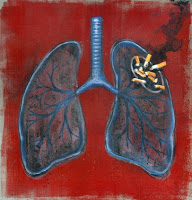Two major studies showing the reduction of lung cancer deaths by 20 percent (as a result of preventive screenings for individuals with a history of smoking) served as the catalyst for the recommendation. If put in in place, annual CT scans, or screenings which inspect the lungs for possible tumors, would be available to an estimated 10 million Americans. The preventive screenings would be accessible to current and former smokers who meet the following criteria:
- Are between the ages of 55 through 79
- Have smoked a pack of cigarettes a day for 30 years (or the equivalent, such as two packs a day for 15 years)
Conversely, past smokers who quit at least 15 years ago and individuals who are too sick or frail to undergo cancer treatment would be ineligible for the screenings. Additionally, younger or lighter smokers are not advised to undergo the preventive scans since the benefits of screenings have yet to be determined for individuals who are at a lower risk of developing lung cancer.
The USPSTF’s recommendation follows in the footsteps of several health organizations, including the American Society of Clinical Oncology and the American Lung Association, that have advocated for lung cancer screenings for high-risk individuals.
The proposed recommendation is open for public comment until August 26th. Afterwards the task force will implement suggested modifications and issue the final guidelines for the recommendation before it goes into effect. As part of the Affordable Care Act, insurance companies will be required to cover annual lung cancer screenings as a preventive measure for individuals who meet the newly outlined criteria.
As smoking is the culprit in roughly 85 percent of all lung cancer deaths, experts on the panel hope to generate awareness to this health issue and change the way individuals view lung cancer.
Visit the UPMC CancerCenters website to learn more about lung cancer services and treatments.









